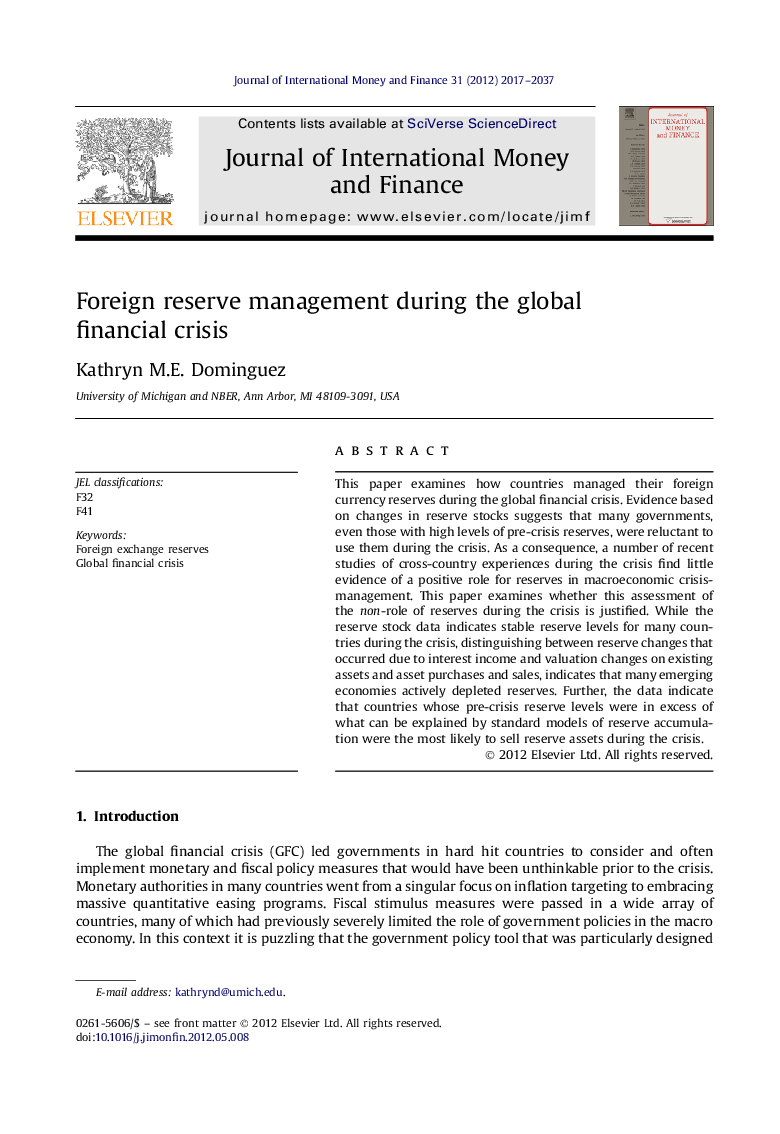| Article ID | Journal | Published Year | Pages | File Type |
|---|---|---|---|---|
| 964161 | Journal of International Money and Finance | 2017 | 21 Pages |
This paper examines how countries managed their foreign currency reserves during the global financial crisis. Evidence based on changes in reserve stocks suggests that many governments, even those with high levels of pre-crisis reserves, were reluctant to use them during the crisis. As a consequence, a number of recent studies of cross-country experiences during the crisis find little evidence of a positive role for reserves in macroeconomic crisis-management. This paper examines whether this assessment of the non-role of reserves during the crisis is justified. While the reserve stock data indicates stable reserve levels for many countries during the crisis, distinguishing between reserve changes that occurred due to interest income and valuation changes on existing assets and asset purchases and sales, indicates that many emerging economies actively depleted reserves. Further, the data indicate that countries whose pre-crisis reserve levels were in excess of what can be explained by standard models of reserve accumulation were the most likely to sell reserve assets during the crisis.
